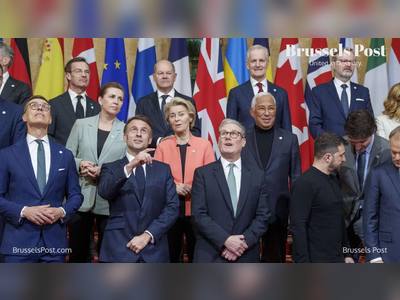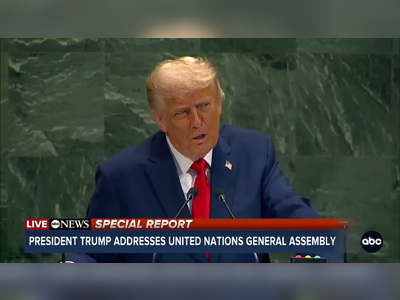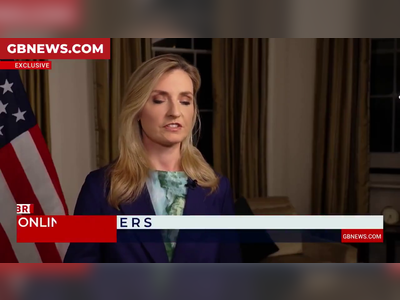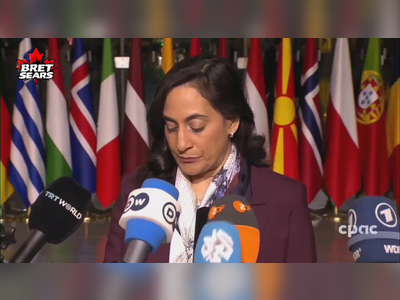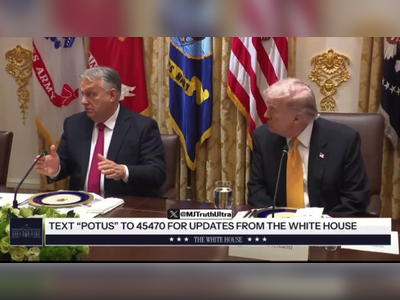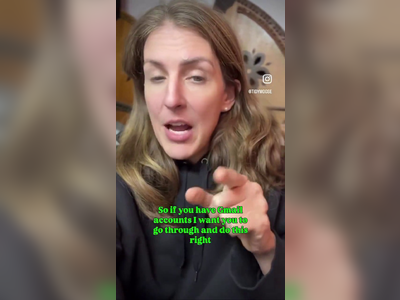
European Commission's Transparency Controversy: Von der Leyen Faces Pfizergate Verdict
The EU General Court set to rule on transparency violations related to communications between Ursula von der Leyen and Pfizer CEO.
Ursula von der Leyen, President of the European Commission, awaits a critical ruling from the General Court of the European Union regarding the controversial 'Pfizergate' case.
This decision, expected on Wednesday morning, will determine whether the Commission violated transparency regulations by denying public access to text messages exchanged between von der Leyen and Pfizer CEO Albert Bourla during negotiations for a substantial vaccine procurement deal.
The underlying issue stems from a complaint filed by The New York Times in 2023, which highlighted the refusal of the Commission to disclose the content of these communications.
The messages surfaced in discussions with Bourla in 2021, when the Commission was finalizing a €35 billion agreement for 900 million Covid-19 vaccines, with an option for an additional 900 million.
The Commission had initially cast doubt on the existence of these messages.
However, in November 2023, Commission lawyer Paolo Stancanelli confirmed that private communications between von der Leyen and Bourla did occur.
The court's ruling may compel the Commission to reveal the details of these exchanges.
The Commission has maintained that if the text messages contained significant information pertinent to the contract negotiations, they would have been archived in accordance with internal procedures.
Officials stated that they were unable to confirm whether the messages still existed or if they had been deleted.
Furthermore, the Commission cited the ephemeral nature of text messages as a rationale for their exclusion from formal documentation requirements.
Internal guidelines specify that only communications with substantial content are registered and archived, which the Commission argues exempts brief text messaging exchanges.
This legal dispute has generated a significant public discourse, with multiple NGOs and Members of the European Parliament (MEPs) advocating for the release of the messages.
Shari Hinds, the EU political integrity lead at Transparency International, emphasized that secrecy in matters concerning public health was unacceptable, urging for transparency in major agreements impacting citizen wellbeing.
MEPs from various political factions, including the Socialists and Democrats (S&D), the Greens, and a section of Renew Europe, have echoed calls for disclosure.
Tilly Metz, a member of the Greens, asserted that refusal to release such information undermines democratic accountability and conveys a concerning message regarding corporate influence over public interests.
Despite ongoing criticism, von der Leyen has consolidated her position within the Commission.
Even in the event of an unfavorable judgment on Wednesday, it is anticipated that she may downplay any repercussions from the ruling.
Political analysts suggest that the judgment could provide fodder for right-wing parties across Europe, which often leverage controversies involving Brussels in their domestic campaigns.
Hinds noted that the Commission's consistent reluctance to disclose these messages has facilitated the far-right's narrative.
In addition to the verdict on the Pfizer communications, the court will address two other cases concerning access to documents brought by NGOs.
Notably, in December 2022, the Commission revised its internal procedures regarding document accessibility, which now omits certain types of instant messaging from archival standards, raising further concerns about transparency within EU institutions.
This decision, expected on Wednesday morning, will determine whether the Commission violated transparency regulations by denying public access to text messages exchanged between von der Leyen and Pfizer CEO Albert Bourla during negotiations for a substantial vaccine procurement deal.
The underlying issue stems from a complaint filed by The New York Times in 2023, which highlighted the refusal of the Commission to disclose the content of these communications.
The messages surfaced in discussions with Bourla in 2021, when the Commission was finalizing a €35 billion agreement for 900 million Covid-19 vaccines, with an option for an additional 900 million.
The Commission had initially cast doubt on the existence of these messages.
However, in November 2023, Commission lawyer Paolo Stancanelli confirmed that private communications between von der Leyen and Bourla did occur.
The court's ruling may compel the Commission to reveal the details of these exchanges.
The Commission has maintained that if the text messages contained significant information pertinent to the contract negotiations, they would have been archived in accordance with internal procedures.
Officials stated that they were unable to confirm whether the messages still existed or if they had been deleted.
Furthermore, the Commission cited the ephemeral nature of text messages as a rationale for their exclusion from formal documentation requirements.
Internal guidelines specify that only communications with substantial content are registered and archived, which the Commission argues exempts brief text messaging exchanges.
This legal dispute has generated a significant public discourse, with multiple NGOs and Members of the European Parliament (MEPs) advocating for the release of the messages.
Shari Hinds, the EU political integrity lead at Transparency International, emphasized that secrecy in matters concerning public health was unacceptable, urging for transparency in major agreements impacting citizen wellbeing.
MEPs from various political factions, including the Socialists and Democrats (S&D), the Greens, and a section of Renew Europe, have echoed calls for disclosure.
Tilly Metz, a member of the Greens, asserted that refusal to release such information undermines democratic accountability and conveys a concerning message regarding corporate influence over public interests.
Despite ongoing criticism, von der Leyen has consolidated her position within the Commission.
Even in the event of an unfavorable judgment on Wednesday, it is anticipated that she may downplay any repercussions from the ruling.
Political analysts suggest that the judgment could provide fodder for right-wing parties across Europe, which often leverage controversies involving Brussels in their domestic campaigns.
Hinds noted that the Commission's consistent reluctance to disclose these messages has facilitated the far-right's narrative.
In addition to the verdict on the Pfizer communications, the court will address two other cases concerning access to documents brought by NGOs.
Notably, in December 2022, the Commission revised its internal procedures regarding document accessibility, which now omits certain types of instant messaging from archival standards, raising further concerns about transparency within EU institutions.
AI Disclaimer: An advanced artificial intelligence (AI) system generated the content of this page on its own. This innovative technology conducts extensive research from a variety of reliable sources, performs rigorous fact-checking and verification, cleans up and balances biased or manipulated content, and presents a minimal factual summary that is just enough yet essential for you to function as an informed and educated citizen. Please keep in mind, however, that this system is an evolving technology, and as a result, the article may contain accidental inaccuracies or errors. We urge you to help us improve our site by reporting any inaccuracies you find using the "Contact Us" link at the bottom of this page. Your helpful feedback helps us improve our system and deliver more precise content. When you find an article of interest here, please look for the full and extensive coverage of this topic in traditional news sources, as they are written by professional journalists that we try to support, not replace. We appreciate your understanding and assistance.
